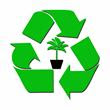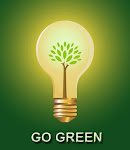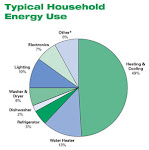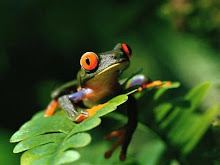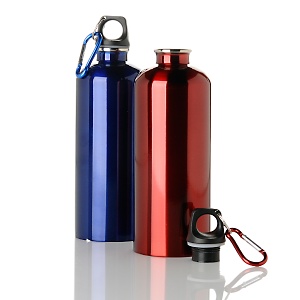Thursday, April 30, 2009
Sunday, March 22, 2009
Seventh Generation Paper Towels - Use 100% Recycled Paper

If every household in the U.S. replaced just one roll of 120ct. virgin fiber paper towels with 100% recycled ones, we could save:
- 993,000 trees
- 2.4 million cubic feet of landfill space, equal to 3,700 full garbage cans
- 350 million gallons of water, a years supply for 2,700 families of 4
- Avoid 59,600 tons of emissions
Thursday, March 19, 2009
Very Cool Power-Hog Piggy Bank

Check this out!
A power-consumption-metering piggy bank is designed to educate children about the energy cost associated with running electronics devices.
Plug the Power-Hog Pig tail into the outlet and the device into the snout; feed a coin to meter 30 minutes of use. Kids can use their allowance to turn on the TV or video game by feeding the Power-Hog with loose change.
The Power-Hog meters consumption and blinks red when time is running out. It also helps parents meter the amount of time spent watching the tube.
Sunday, March 15, 2009
Reel Push Mowers-No Gas-Great Exercise
Thursday, March 5, 2009
Green Your Diet
 Return to fresh, flavorful foods. Simple ways to green your diet.
Return to fresh, flavorful foods. Simple ways to green your diet.Veggies and Fruit
Try to buy the organic version of fruits and vegetables.
Stress? Relax with a Glass of Organic Wine
Organic wines are now available, as well as great local wines from coast to coast. Red wine has an important antioxidant.
The Grandma Test
How can you tell if a food is green? Ask yourself, “Would my grandmother (or for some of us, great-grandmother) recognize this thing as actual food?"
Eat a Local Meal
The average food item travels over 1,500 miles to get to our plates — that's a lot of pollution and waste created to make dinner.
Go with the Grain
Grains! Delicious, healthful and comforting? The grain group includes wheat, rice, oats, cornmeal and barley. They’re naturally low in fat and high in vitamins.
Sunday, March 1, 2009
Natural Cleaning Products
 Try 3 Homemade Natural Cleaning Products or
Try 3 Homemade Natural Cleaning Products or Seventh Generation
Using lemons, vinegar, and baking soda as natural cleaning products in your home
Vinegar naturally cleans like an all-purpose cleaner. Mix a solution of 1 part water to 1 part vinegar in a new store bought spray bottle and you have a solution that will clean bath, kitchen and laundry areas of your home. Vinegar is a great natural cleaning product as well as a disinfectant and deodorizer. Always test on an inconspicuous area. It is safe to use on most surfaces and has the added bonus of being incredibly cheap. Improperly diluted vinegar is acidic and can eat away at tile grout. Never use vinegar on marble surfaces. Don't worry about your home smelling like vinegar. The smell disappears when it dries.
Lemon juice is another natural substance that can be used to clean your home. Lemon juice can be used to dissolve soap scum and hard water deposits. Lemon is a great substance to clean and shine brass and copper. Lemon juice can be mixed with vinegar and or baking soda to make cleaning pastes. Cut a lemon in half and sprinkle baking soda on the cut section. Use the lemon to scrub dishes, surfaces, and stains.Putting a whole lemon peel through the garbage disposal freshens the drain and the kitchen.
Baking soda can be used to scrub surfaces in much the same way as commercial abrasive cleansers. Baking soda is great as a deodorizer. Place a box in the refrigerator and freezer to absorb odors. Put it anywhere you need deodorizing action.
There are a few natural cleaning products on the market such as Seventh Generation. Seventh Generation is formulated to be safe for your family and the environment, this product does not create harsh fumes and is a non-toxic, biodegradable alternative to conventional petroleum-based cleaners.

Sunday, February 22, 2009
Reusable Shopping Bags

Plastic or paper? The truth is, the statistics on both types of bags are disturbing.
According to the National Geographic News, between 500 billion and one trillion plastic grocery bags are consumed worldwide each year. In the United State alone, 12 million barrels of oil are required to produce enough plastic bags to appease our needs.
Well paper must be better, right? Actually producing paper bags requires more energy and creates more air and water pollution than producing plastic bags. Recycling paper is much more energy-intensive than recycling plastic and we are cutting down millions of trees to create those paper grocery bags.
Plastic or paper? At first glance the alternatives seem less than convenient. But after finding some easy solutions: Reusable Shopping Bags.
Now we’re saying “neither thanks” to “plastic or paper?”
Subscribe to:
Posts (Atom)


